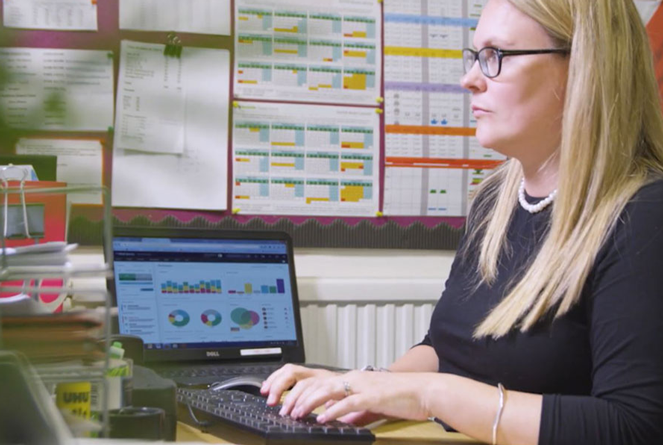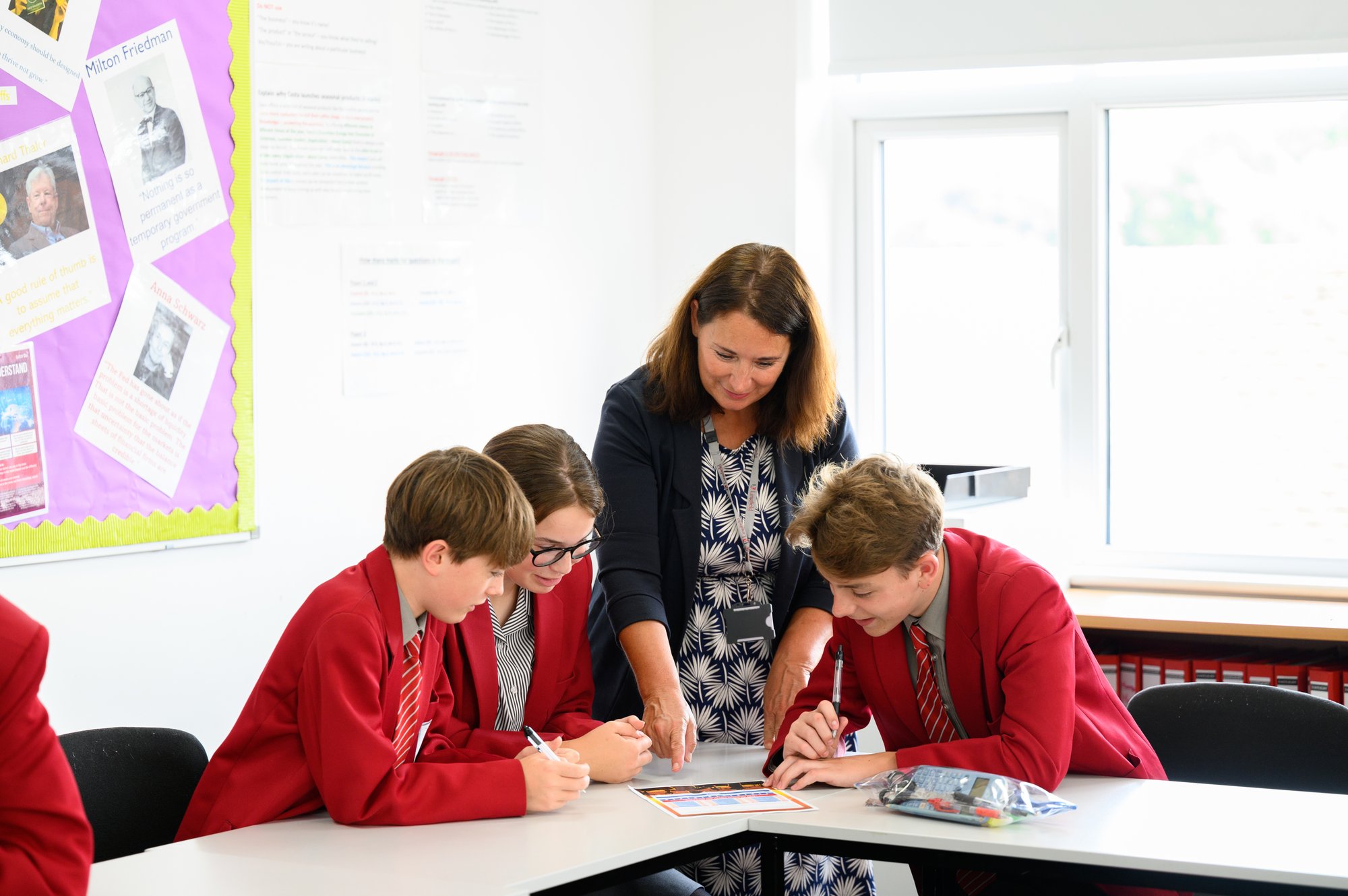Ofsted Annual Report
In the first of our short series of blogs on the Ofsted Annual Report (released 23/11/2023) we focussed on the key points around curriculum and teacher development. Today, we bring you the second blog in this series, where we will shine a light on safeguarding, attendance, behaviour, SEND and Alternative Provision. We will consider some of the key points and suggest ways in which our experts at Juniper Education, a company which looks after you so you can look after our children, may be able to support you.
Safeguarding
Safeguarding will always be a major part of any Ofsted inspection, which is the same when considering Early Years Providers. This year, 8% of full EYR inspections found safeguarding ineffective, which is down 1% from last year. The main reason for an ‘ineffective safeguarding judgement is due to the lack of knowledge and understanding of safeguarding policy or procedures, particularly those for reporting and responding to concerns about children.’ Through Juniper, if you are an early years provider, we can support your Designated Safeguarding Lead/Deputy with one of our many Level 3 safeguarding courses, which are customised for Early Years so that you receive the most up-to-date and relevant safeguarding information and advice. If you purchase our Safeguarding Training Package, you will also receive an unlimited number of places on our Level 1 Safeguarding courses, in addition to a place on a Level 3 course. Our Level 1 course will help develop your staff’s knowledge and confidence in recognising and reporting safeguarding concerns.
99% of schools received a judgement of effective safeguarding. For this continued open and positive safeguarding culture to continue, schools and colleges must ensure they have regular, continued training where there is effective communication about safeguarding and cross-checking each other’s work. Ofsted stated, ‘All staff should be empowered to act if they have concerns.’ This does not mean staff independently investigating concerns but using their professional curiosity and your setting’s procedures to report when there is a suspected safeguarding concern.
Do you track your safeguarding training? Do you support your staff’s CPD through shorter webinars or courses and the longer September training? To support your ongoing hard work on safeguarding, here at Juniper, we offer a wide variety of courses that can help your context, e.g. Domestic Abuse Awareness, Child-on-Child Abuse, Preparing for Ofsted: Safeguarding, plus many more.
Absence and low attendance continue to be an issue post-pandemic and Ofsted reports a change in parental attitudes towards full-time education. They have highlighted that attendance is a particular concern in secondary schools, where they are noticing a pattern of higher-than-normal absences on Mondays and Fridays. It was reported in the Autumn of 2022 that persistent absence was 24%, which rose to 33% when looking at SEN support and 38% for pupils who have EHCPs. One of the key factors in lower than pre-pandemic attendance figures is the increase in pupils dealing with anxiety and mental health issues, as well as pupils who have either undiagnosed SEND or are currently attending inappropriate provisions. In addition, Ofsted are also concerned about the number of pupils who are in school but not in lessons and the increasing number of pupils on part-time timetables, which are not always seen as part of a re-integration package. This concern around attendance is also reflected in Keeping Children Safe in Education, which has stated that safeguarding concerns should not just focus on children missing in education but also children who are regularly absent in education.
We understand that improving attendance can be a difficult and long process, where you are often trying to support the most vulnerable who may not always value education or know how to ask for help but our experts at Juniper are here to support you. If your attendance is below the national average or if you would like to identify if there are any areas of development in your processes and procedures, Juniper can support you through our attendance audit and CPD session on improving attendance, which can be run as a twilight to staff following the audit. The audit and twilight can be tailored to your context for you to receive the best possible advice.
Behaviour
Behaviour not only impacts learning in lessons but also both pupil and staff wellbeing. During this year’s Annual Report, it is reported that teachers and pupils continue to see more disruptive behaviour. One of the main concerns flagged up is persistent low-level disruptions (refusing to do as they are told, talking back to teachers or using social media in class). Secondary schools seem to have specific issues such as internal truancy, as previously mentioned, vandalism of school property, bullying, harassment or derogatory language and behaviours. Three-quarters of the reasons given for all suspensions and two-thirds of all exclusions were persistent disruptive behaviour, physical assault against a pupil and verbal or threatening behaviour against an adult. One of the many reasons given for this is the failure to manage ordinary pupil anxiety. As we are aware, behaviour is usually a symptom rather than a cause of an underlying issue, but to understand the cause, we have to support our pupils with their emotional regulation, understanding how to manage healthy relationships and how to keep themselves and others safe. Schools can do this by modelling behaviours and explicitly teaching desired behaviours. We offer a variety of courses that can support your staff in developing their skills around emotional regulation, developing a whole school approach to mental health and wellbeing, dealing with exam stress and using health education to support well-being.
SEND
SEND in Early Years and Schools is weaved through the Annual Report and remains a high priority as the number of pupils with SEND (undiagnosed and diagnosed) continues to increase. In Early Years the number of children under 5 given a new EHCP in 2022 increased by 15% compared to 2021. Nearly a quarter of all new EHCPs were given to children under 5 years old. Children’s language and communication skills continue to be a concern post-pandemic. It is reported that practitioners are noticing children know fewer words or lack the confidence to speak. Settings are having to find new ways to support children as they wait for external services such as Speech and Language. This means they are having to adapt their curriculum to focus on communication and language. Ofsted commented in their report that best practice settings are training their staff in how to support children who need extra help.
Pressures in school and the SEND system also continue in schools as the numbers continue here as well. According to the report ‘Many children, young people and families are experiencing delays in access to services, particularly to wider health and therapeutic services, such as speech and language therapy and mental health services. Local authorities are struggling to meet the demand for assessments and follow-on services. These delays harm the quality of specialist educational provision, which relies on external professional expertise and services to support its pupils.’
Ofsted has suggested that part of the reason is that, due to the pandemic, pupils could not access the wider support they needed as early as required. Pupils with autism continue to be the primary category of need in EHCPs. For those with SEN support, it is Speech, Language and Communication, closely followed by Social, Emotional and Mental Health Needs and Moderate Learning Difficulties.
Juniper can support your staff by delivering courses and webinars on supporting students with SEND in mainstream schools where most are educated. We also deliver a course on practical ideas to make your school autism friendly and support your students with dyslexia.
Alternative Provision
As the number of pupils with SEND increases and a shortage in Special School places, more children and young people attend Alternative Provisions. There are numerous Alternative Provision settings, both registered and unregistered and Ofsted inspects them in various ways. This can be through full inspections for provisions registered as schools or indirectly for provisions that do not operate full-time. There has been a 13% increase in the use of Alternative Provisions from January 2022 to January 2023. Unregistered and independent providers are the fastest growing in this sector. In addition, the number of younger pupils attending Alternative Provision is growing. 21% of pupils attending Alternative Provision were under the age of 11 years old, which is a 6% increase from the previous year. When students attend an Alternative Provision, schools are still responsible, and they have to ensure they complete their due diligence and maintain strong links with any providers to ensure placements safeguard their pupils and have an appropriate curriculum for their pupils’ needs. Suppose you are a registered Alternative Provision or a school where your students attend an Alternative Provision. In that case, we can support you through our Preparing for Ofsted series of webinars, which includes a focus on Alternative Provisions.
Empower Your School with Targeted Training
Explore our range of training courses to support your school's safeguarding, attendance, behaviour, and SEND needs. Elevate your education expertise now!


/Primary%20school%20.jpg?width=2000&name=Primary%20school%20.jpg)








.png?width=940&height=788&name=Lingfield%20College%20Case%20Study%20(5).png)
-1.png?width=1000&height=833&name=National%20Association%20of%20Head%20Teachers%20(3)-1.png)
-3.png?width=1080&height=1080&name=Untitled%20design%20(10)-3.png)






